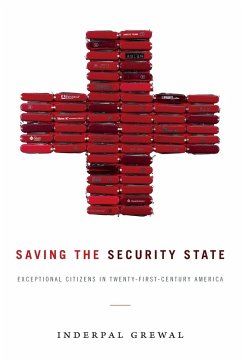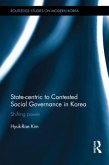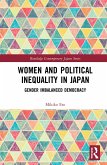In Saving the Security State Inderpal Grewal traces the changing relations between the US state and its citizens in an era she calls advanced neoliberalism. Marked by the decline of US geopolitical power, endless war, and increasing surveillance, advanced neoliberalism militarizes everyday life while producing the "exceptional citizens"-primarily white Christian men who reinforce the security state as they claim responsibility for protecting the country from racialized others. Under advanced neoliberalism, Grewal shows, others in the United States strive to become exceptional by participating in humanitarian projects that compensate for the security state's inability to provide for the welfare of its citizens. In her analyses of microfinance programs in the global South, security moms, the murders at a Sikh temple in Wisconsin, and the post-9/11 crackdown on Muslim charities, Grewal exposes the fissures and contradictions at the heart of the US neoliberal empire and the centrality of race, gender, and religion to the securitized state.








